SUMMARY
This is AI generated summarization, which may have errors. For context, always refer to the full article.
![[ANALYSIS] Taliban’s Afghanistan: A world reorder?](https://www.rappler.com/tachyon/2021/08/imho-taliban-chinaus-sq.jpg)
Scars on US foreign policy
The withdrawal of the US from Afghanistan and the swift takeover by the Taliban has taken centerstage in global geopolitical discourse for the past few days. Moreover, US President Joe Biden’s unwavering support for his decision to withdraw US troops from Afghanistan, despite several Afghans scrambling for the last flights out of the country, has added a new layer of complexity in understanding US foreign policy.
The US response represents a clear application of realpolitik, and a stark deviation from the liberally ideological perspective, which motivated its involvement in Afghanistan in the first place two decades ago. However, such a decision will inevitably have implications not only for regional security, but also for the global image of the US amid its ongoing power competition with China.
Commentators have been quick to spectate a series of possibilities for such a withdrawal. The first scenario is that the pull-out of US troops from South Asia is aimed at solidifying Washington’s military presence in East Asia to more effectively counter China. The second proposition is that the US withdrawal from Afghanistan will serve as a significant vacuum for China to solidify its power throughout the continent.
Though these speculations may be interesting and worth investigating, certain aspects need to be addressed. If there is one thing that China has learned from Afghanistan’s history, it is that extra-regional powers best tone down their strategic expectations. However, despite the public show, the reality is that China is aware of its limitations and constraints in trying to exploit the power vacuum left by the US in Afghanistan.
However, the US withdrawal is also not without serious mid-term and long-term risks. One evident problem is that the rise of the Taliban can seriously exacerbate the already-notorious issue of terrorism and insurgency in South Asia. The ties between the Taliban and al-Qaeda are well known. Two decades ago, the Taliban refused to hand over Osama bin Laden and other key al-Qaeda members, which prompted the US to carry out operations against them. Today, as the Taliban are back in power, there are fears of the al-Qaeda establishing a new hub in Afghanistan, along with other foreign fighters.
In this context, the role of Pakistan needs to be highly emphasized. Pakistan’s ties to the Haqqani network have been enduring. During the last two decades, Pakistan has continued to train and recruit several terrorist groups operating in Afghanistan. Moreover, since the 1950s, Pakistan has been utilizing Islamist organizations like the Jamaat-e-Islami to influence Afghanistan’s internal affairs. Moreover, as the Taliban continues to consolidate its power in Afghanistan, this web of terror networks will be able to thrive more effectively. Pakistan’s support for the Taliban is no mystery. In fact, the highly optimistic praise of Pakistani Prime Minister Imran Khan on the swift turn of events further demonstrates this.
Another immediate implication of the withdrawal is the effects it will have on the global image of the United States. Psychological warfare plays a critical tool in demoralizing the character of great powers. Washington’s move to pull out despite the inevitable consequence will be added to its list of unsuccessful interventions along with Iraq and Libya. China was quick to exploit this opportunity with a publication on how the US has embarrassed its global image. The Europeans have also expressed their dismay regarding the US decision. While the material capabilities of the US to project power continue to remain robust, its soft power has significantly diminished among its allies and partners. This will have serious long-term implications on US foreign policy as the geopolitical landscape continues to drastically shift.
China’s conditional coffer to the Taliban
As a rising superpower, China cleverly cements its economic stature through its Belt Road Initiative trademark, strutting immediate friendly relations with the Taliban after a recent, non-resistant takeover of Afghanistan. Directly speaking to the Taliban after the fall of Kabul on August 15, 2021, Beijing understands the abrupt Afghan consensus of an inclusive Islamist rule and hardline Islamic government, aspiring for the elusive road to peace, reconciliation, and reconstruction.
Beijing plays safe now by admitting the legitimacy of the new Taliban-led Afghan government, ensuring China’s security interest in the Muslim-dominated Xinjiang Uyghur Autonomous Region (XUAR), China’s largest province-level division, to halt any Uyghur-led terrorist attacks. Unlike Ziang Zemin’s 1996 de-recognition position of the Taliban’s insurgent rule in Kabul that lasted up to 2001, it even shut down its embassy for years.
Xi Jinping’s open arms and non-interventionist approach to the resurgent Taliban signals a pivot of the world order after its hegemonic rival, the United States, withdraws from its 20-year rule in Afghanistan. It’s backlash the US gained from its denouncement of the untruthful “weapons of mass destruction,” and its branding of Afghanistan as part of the “axis of evil.” The American occupation created a monstrous apparition for the US and its allies, after a retributory act on the 9/11 terrorist attack, which may halt its police power globally.
China’s newfound economic confidence has placed Beijing in a position to act as de facto superpower, as it gambles to reconstruct Taliban’s pivotal role in governing Afghanistan. Chinese State Councilor and Foreign Minister Wang Yi warmly welcomed the Taliban’s co-founder Mullah Abdul Ghani Baradar, along with eight other representatives, last July 28, 2021 in China’s Northern Province at Tianjin, for a two-day dialogue on the peace process and internal security matters. Eighteen days after the meeting, the seven-year rule of re-elected Afghan president and failed state expert Ashraf Ghani ended, and Ghani hastily fled his office and abandoned his people to avoid bloody civil war.
Russia’s not-so-great game amid the Taliban takeover
Moscow did not waste a moment after the Taliban retook Kabul from the Afghan government. Reports indicate that the Russians immediately made contact with the Taliban via its embassy. Moscow may be buoyant over the unprecedented rate of American military withdrawal last July, as it symbolizes Washington’s shortsightedness at the policy level. However, it does not say the same with regard to the Taliban filling the domestic power vacuum over the Central Asian state.
Russian strategic interests in Afghanistan have been historical and geopolitical: to secure its broad-stretched southern flank by keeping post-Soviet states safe from either Islamist terrorist groups or other regional great powers like China. While the national trauma over its failure during the Soviet Invasion of Afghanistan in 1979 prevents Russia from conducting ground operations, the Kremlin is far from indifferent to the White House’s failed nation-state-building.
In the short term, Russia will likely be busier, balancing tools of national power for its grand strategy: namely its intelligence agency, the Glavnoye razvedyvatel’noye upravleniye (GRU), to monitor the situation; diplomacy, to communicate with regional stakeholders such as China, India, Pakistan, Iran, and Turkey; and combined arms exercises with its Collective Treaty Security Organization (CSTO) allies, especially Tajikistan. Between July and August 2021, Moscow provided Dushanbe with more arms, equipment, and training, and held military drills together.
Russia, in the long term, would need to clarify what its objectives are in Afghanistan, and how to achieve them and until when. What is clear is that Afghanistan is not Syria. It cannot easily support the regime to protect its interests through the employment of strategic airpower, let alone deployment of ground forces. Doing so would be political suicide for the Kremlin, and therefore, an enormous blow on itself even before it can secure the spoils of the game. That is why Russia, although claiming to be good friends with the Taliban, does not recognize the Taliban as the de jure government, for it desires to be a significant broker of regional peace and security.
Russia’s game is not so great, because it cannot play under the same rules it once did to undermine pro-democratic or Islamist institutions. This time, China could be at an advantage and could bring more uncertainty to their inconvenient partnership. Whether Russia will let China slip off this time is yet to be seen. A regional reorder, in this way, is uncomfortable work for Russia; but work that they need to take on, nonetheless. – Rappler.com
The authors are foreign relations and security analysts from the Manila-based think-tank International Development and Security Cooperation.
Voices features opinions from readers of all backgrounds, persuasions, and ages; analyses from advocacy leaders and subject matter experts; and reflections and editorials from Rappler staff.
You may submit pieces for review to opinion@rappler.com.
Add a comment
How does this make you feel?
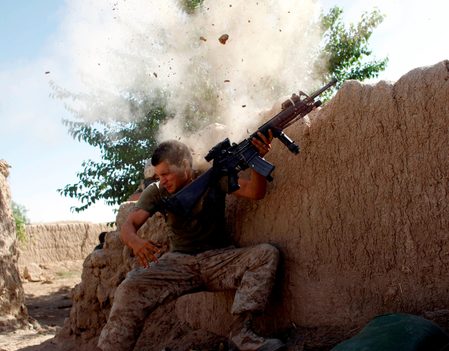
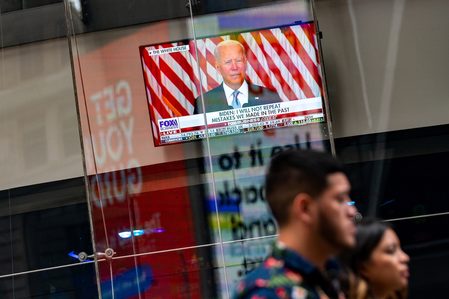
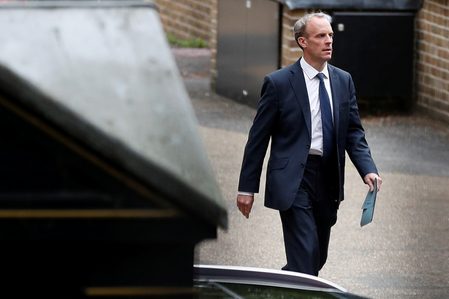

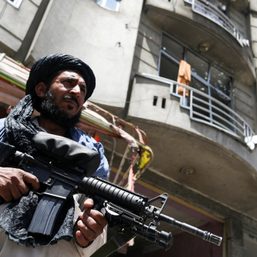
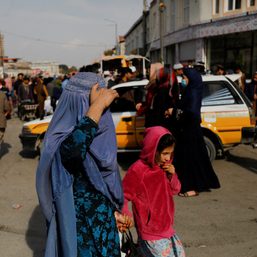

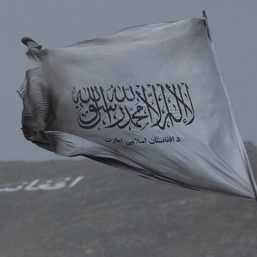
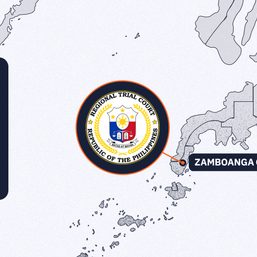
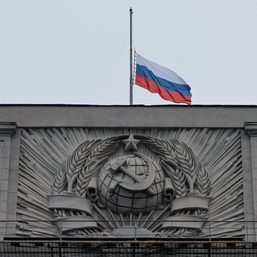

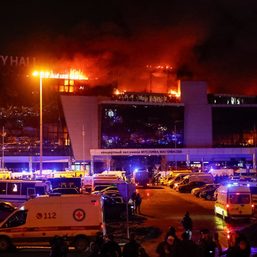







![[OPINION] Unjust wars and a just peace](https://www.rappler.com/tachyon/2024/03/tl-unjust-war-just-peace03262024.jpg?resize=257%2C257&crop_strategy=attention)
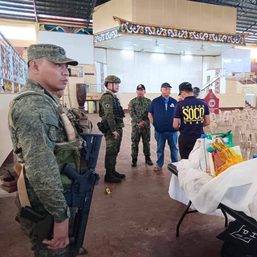
![[OPINION] The BARMM must address intersecting climate and conflict risks now](https://www.rappler.com/tachyon/2024/02/ispeak-barmm-climate-change-feb-9-2024.jpg?resize=257%2C257&crop=286px%2C0px%2C720px%2C720px)
There are no comments yet. Add your comment to start the conversation.